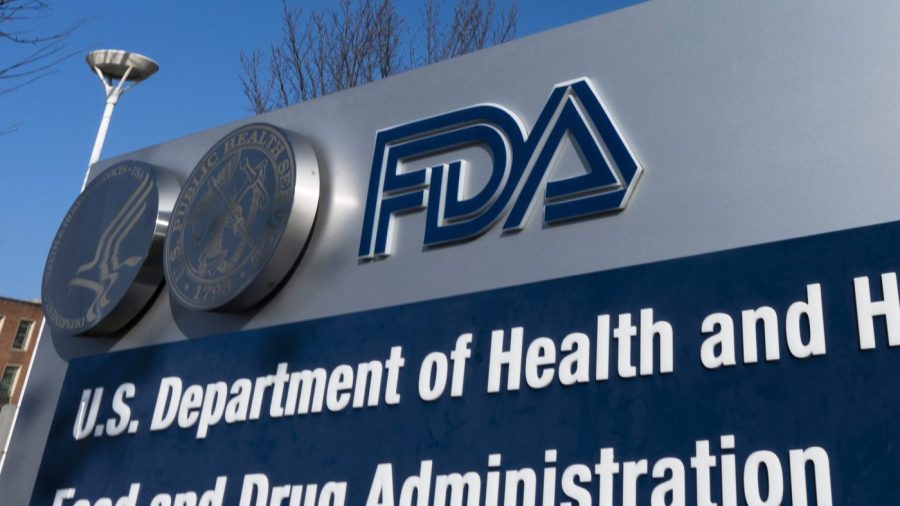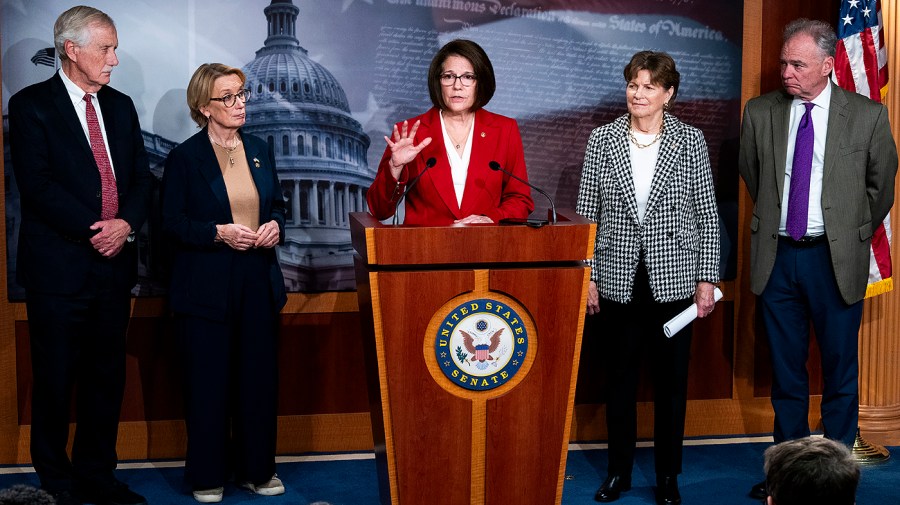Health and Human Services (HHS) Secretary Robert F. Kennedy Jr. announced Monday the black box warning on women’s estrogen-based products for hormone replacement therapy (HRT) will be removed.
“For more than two decades, the American medical establishment turn[ed] its back on women. Millions of women were told to fear the very therapy that could have given them strength, peace and dignity through one of life’s most difficult transitions, menopause,” Kennedy said at a press briefing held at the HHS headquarters.
“That ends today,” he added. “The FDA is initiating the removal of a broad black box warnings [on] hormone replacement therapy products for menopause.”
The announcement was attended by his wife, actress Cheryl Hines, Kennedy’s daughters and second lady Usha Vance.
Both Kennedy and Food and Drug Administration (FDA) Commissioner Marty Makary pointed to a study from more than 20 years ago, supported in part by the Women’s Health Initiative of the National Institutes of Health, that suggested hormone replacement therapy (HRT) could potentially accelerate pre-existing breast cancers in a women’s body.
“The Women’s Health Initiative study was the largest study ever done in US history, a $1 billion study at the time, and you just heard how that study was misrepresented and created a fear machine that lingers to this day,” Makary said. “There’s no statistical significance in the increase in breast cancer. If we don’t have statistics, then we don’t have science.”
“HRT has saved marriages, rescued women from depression, prevented children from going without a mother,” he added.
Makary indicated that Monday’s move would apply to both bio-identical hormones and synthetic hormones, saying the decision would be left up to individuals and their doctors.
Urologist Kelly Casperson spoke at the event and cited data indicating 30 percent of women don’t take HRT because of the accompanying black box label.
Monday’s announcement was welcomed by some women’s health groups.
“The modifications to certain warning labels for estrogen products are years in the making, reflecting the dedicated advocacy of physicians and patients across the country,” Steven J. Fleischman, president of the American College of Obstetricians & Gynecologists (ACOG), said in a statement, adding that the effort will boost accessibility.
As Fleishman noted, his organization has advocated for the removal of the black box label on low-dose vaginal estrogen due to it limiting its use among people who deal with vaginal and urinary symptoms of menopause.
“Today’s decision restores balance to women’s health policy. For years, risk was overstated and benefit was understated,” said Monique Yohanan, senior fellow for health policy at the conservative nonprofit Independent Women. “Today, fewer than 5 percent of post-menopausal U.S. women use menopausal hormone therapy, down from 25-30 percent two decades ago.”
“By aligning labeling with current evidence, FDA is giving physicians and women the clarity they deserve to make informed choices,” Yohanan added.














